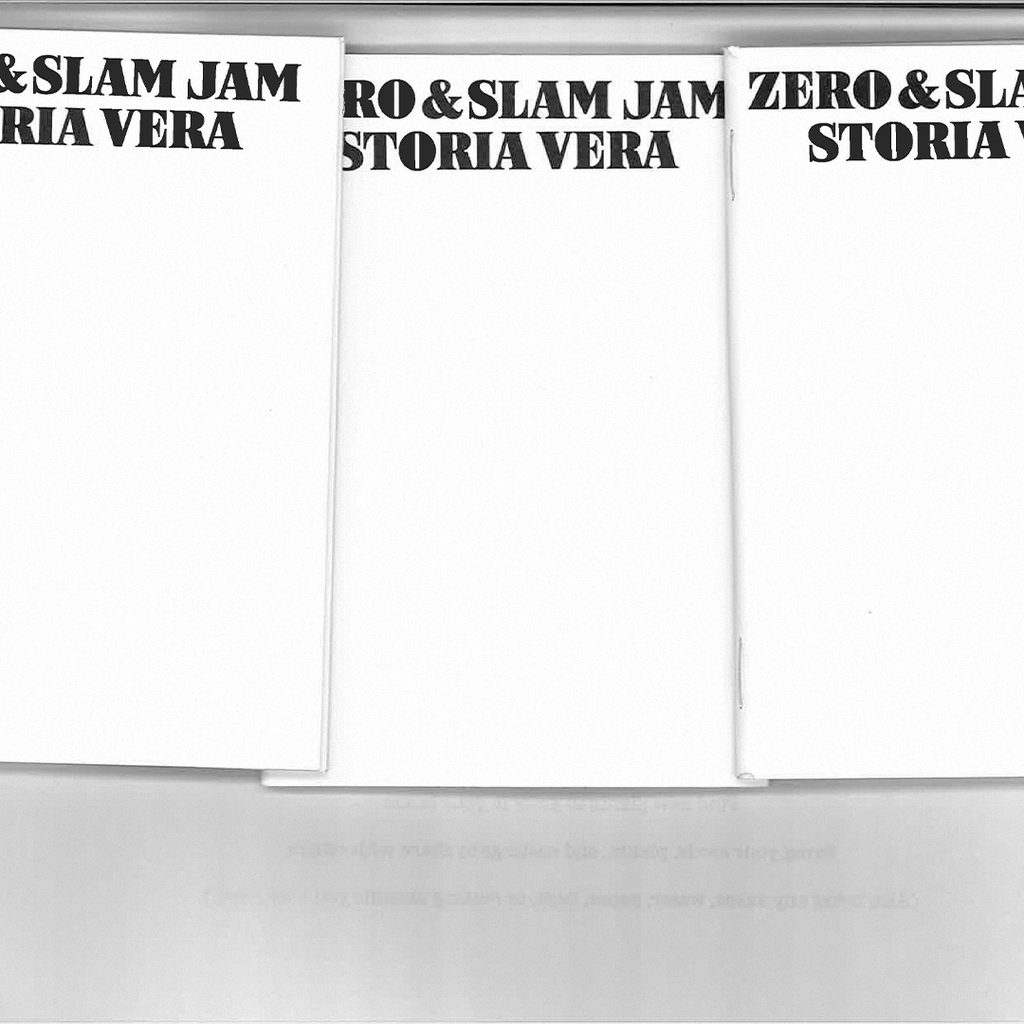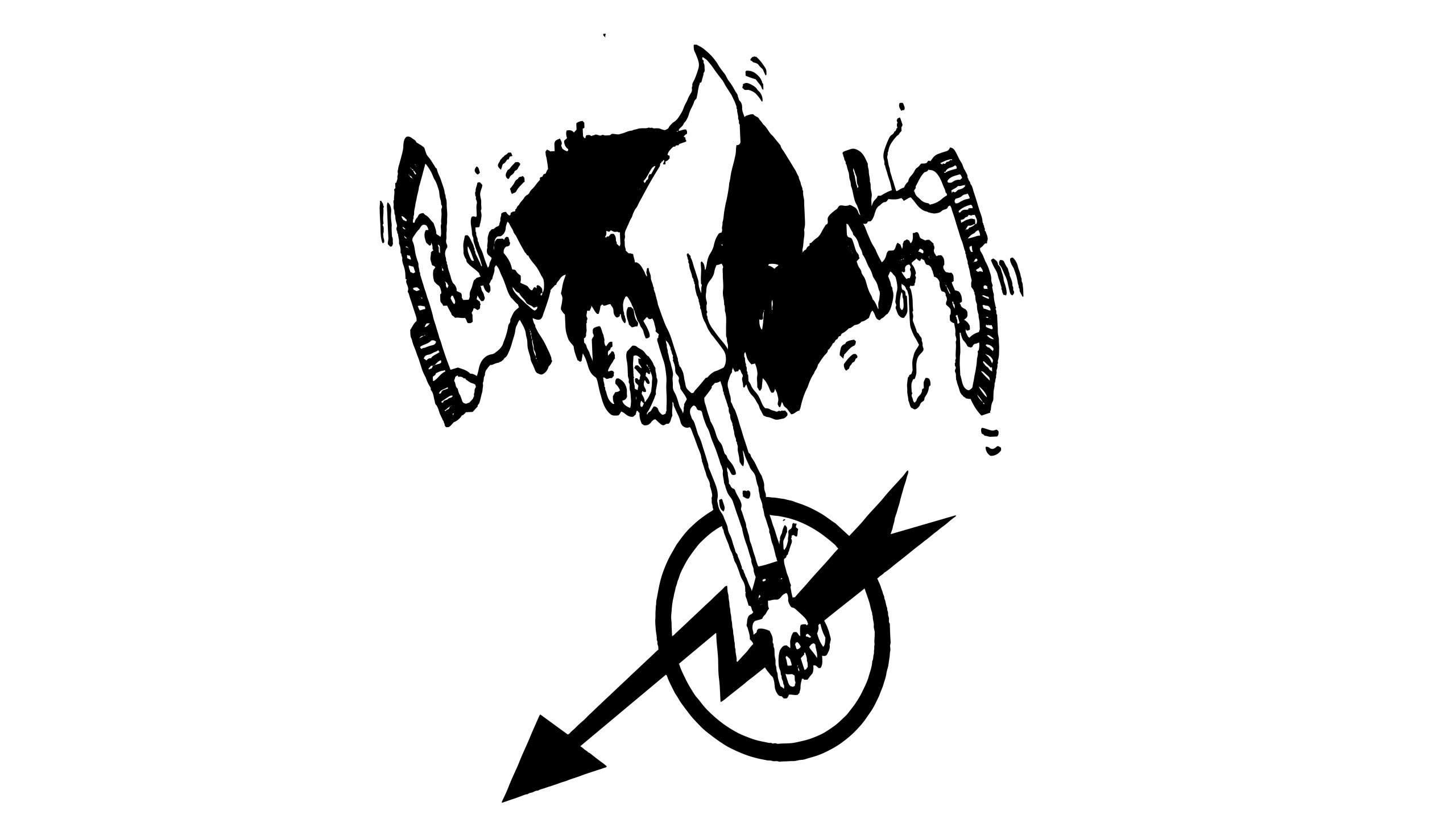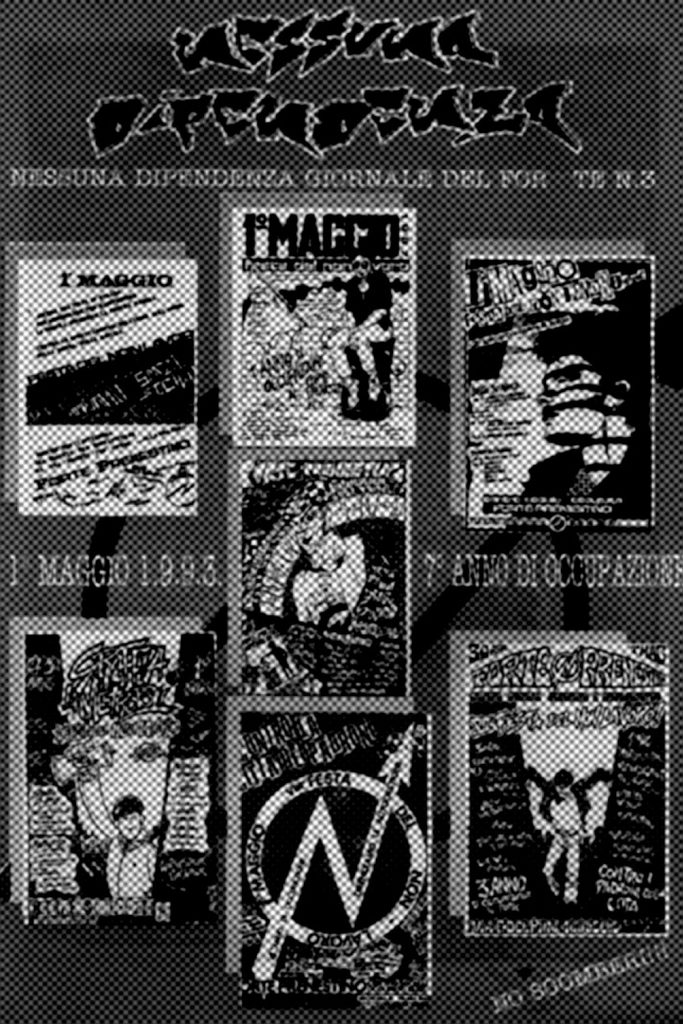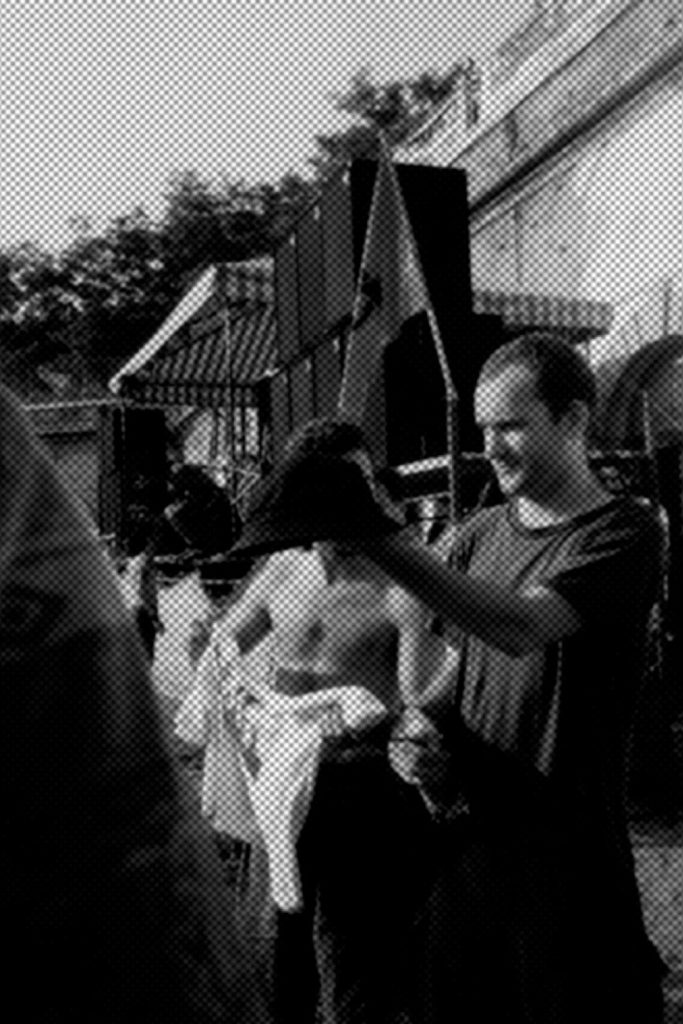Versione italiana
(English version below)
Te lo ricordi l’ultimo concerto dei Fugazi al Forte? Sembrava ci fossero tutti anche se non era vero.
La sensazione è che tutto era concentrato in quel punto nel tempo e nello spazio sotto quel palco. Un palco in un castello di tredici ettari sopravvissuto a due guerre mondiali e che dall’86 è una fenditura nelle ere della capitale. Quel concerto è una formazione geologica nei paesaggi delle nostre cortecce cingolate anteriori. Invece che essere masticato, digerito ed espulso è diventato un parassita nella nostra pseudo-subcultura; l’attivazione leggendaria di sei album in un’ora di post-hardcore che trascende tutti i generi tra intensità punk, paesaggi sonori sperimentali, funk acuminato, dilatazione reggae e sprint metronomici in 4/4 dell’hardcore e delle go-go bands della D.C. nera. Il tutto senza nemmeno un pedale.
Troppo facile pensare che la società sarebbe stata tutta così un giorno.
Lo strappo temporale dei Fugazi è una mappa tratteggiata nelle vene e sulle strade che nessun satellite può ricostruire. Uno stile di vita che nessun vero movimento poteva contenere e che connette dal ‘62 luoghi e tempi dalla Washington pacifista dei diritti civili e LGBTQA+, delle chiese di liberazione radicale e delle pantere nere, dell’hardcore e punk americano, dei drogati e degli anarchici fino a una Roma dove Mike Patton sta pogando e dove Enrico Ghezzi sta commentando i film di Almodovar.
Troppo facile pensare che la società sarebbe stata tutta così un giorno. «Cosa c’è in Italia? Perché ci volete andare? Germania, Olanda vanno bene, ma l’Italia…». Una domanda cinica che sembra fatta ieri. Mackaye rispose con la quantità di persone che gli scrissero e quanto si fossero sentiti a casa. Lollapalooza, no; dieci milioni di dollari e tutto quello che volevano per firmare con Atlantic, no. Forte prenestino, ‘88, ‘95, ‘99, ‘04. Cinquemila lire o un paio d’euro, aperto a tutti. Nel ‘99 i Fugazi cantavano le nostre “End Hits”: i successi della fine. Nei confini porosi della contemporaneità la band traccia linee tra noi e ciò che non va, restando sul lato giusto per mantenere viva la missione a non essere mai d’accordo.
Nel 2001 il mondo cambiava, le parole “centro sociale” mutavano senso per sempre e esiliati da luoghi pubblici progressivamente ostili e violenti ci rifugiavamo online dall’alienazione che restava, in quello che è stato il suplex della storia contemporanea. Da allora ci troveremo sul pavimento con sempre meno fiato.
Dal 2003 la band ha inscenato la sua sparizione senza dire “mai più”, fuggendo le chiusure definitive e i piani a lungo termine, lasciando sospese nuove vecchie domande: «Cosa è successo? Cosa abbiamo fatto? Ci sono barricate ovunque e sbirri a ogni angolo, cosa ne è stato di noi? Chi siamo? Cos’è tutto questo ora?».
Non possiamo essere quello che eravamo, quindi faremmo meglio a iniziare a vivere le nostre vite senza cercare una ragione per farlo.
I Fugazi cantano un presente di ordigni esplosivi fuori dal nostro campo uditivo, della brutalità dei conflitti di classe, di palazzi verticali e scintillanti come obelischi maledetti e il dibattersi in un’infinita obsolescenza in cui la musica è diventata content, in cui la parola generazione è una falsa alleanza e l’underground è vivo solo su siti internet e app che aprono fessure di dissidenza tra un ad e l’altro mentre siamo da soli nelle nostre case troppo piccole e costose. “Da Do-It-Yourself a Embed-It-Yourself”. Oggi il ricordo di quell’oggetto bizzarro e distorto fatto di energia ci sfida a collaborare un po’ di più e raccontarci un po’ meno stronzate. “Committed to excellence”.
Non possiamo essere quello che eravamo, quindi faremmo meglio a iniziare a vivere le nostre vite senza cercare una ragione per farlo. Suonare solo perché non abbiamo altra scelta; anche dovessimo rimanere fottuti in un imboscata e chiusi in un sacco per cadaveri. E anche se non c’eravamo o non c’eravamo ancora, c’è la percezione febbrile di essere stati lì grazie alla memoria di un concerto che non serve a succhiare nostalgia e rovina, ma a non permettere di ripulirci da dosso le colpe della fine del millennio. Le decisioni sono ora e per sempre nostre.
English Version
Do you remember the last Fugazi concert at the Forte? It seemed like everyone was there even though it wasn’t true.
The feeling was that everything was concentrated in that point of time and space under that stage. A stage in a thirteen–hectare castle that survived two world wars and has been a fissure in the capital’s eras since ‘86. That concert is a geological formation in the landscapes of our front tracked barks. Instead of being chewed, digested and expelled, it has become a parasite in our pseudo-subculture; the legendary activation of six albums into an hour of post-hardcore that transcends all genres between punk impact, experimental soundscapes, sharp funk, reggae dilation and 4/4 metronomic sprints of hardcore and black D.C. go-go bands. All without a single pedal.
Too easy to think that society would all be like this one day.
Fugazi’s time rip is drawn in veins and roads that no satellite could map. A lifestyle which no real movement could contain and that connects since ‘62 places and times from the pacifist D.C. of civil and LGBTQA+ rights, of radical liberation churches and the black panthers, of American harcore and punk, of junkies and anarchists to a Rome where Mike Patton is moshing and where Enrico Ghezzi is commenting on Almodovar’s films.
Too easy to think that society would all be like this one day. “What’s in Italy? Why do you want to go there? Germany, Netherland are fine, but Italy…” A cynical question that could have been asked yesterday. Mackaye answered with the amount of people who wrote to him and how much they had felt at home. Lollapalooza, no; ten million dollars and all they wanted to sign with Atlantic, no. Forte Prenestino, ‘88, ‘95, ‘99, ‘04. Five thousand lire or a few euros, always open to all. In ‘99 Fugazi were singing our ‘End Hits’. In the porous borders of the contemporary, the band draws lines between us and what’s wrong, staying on the right side to keep alive the mission to never agree.
In 2001 the world changed, the word ‘squat’ shifted its meaning forever, and exiled from progressively hostile and violent public places we took refuge online from the alienation that remained, in what was the suplex of contemporary history. Since then we have found ourselves on the floor with less and less breath.
Since 2003 the band staged its own disappearance without saying “never again”, fleeing permanent closures and long-term plans, leaving new old questions hanging: “What the fuck was that about? What was happening? What was that? They put fences around everything. There’s a cop on every corner. What happened to us? Who are pwe? What is all this now?”
We can’t be what we were, so we’d better start living life without looking for a reason to do so.
Fugazi sing of a present of explosive devices outside our hearing range, of the brutality of class conflicts, of vertical, gleaming buildings like cursed obelisks and our struggle in an endless obsolescence where music has become content, where the word generation is a false alliance and the underground is alive only on websites and apps that disclose fissures of dissidence between one ad and another while we are alone in our way too-small and expensive homes. “From Do-It-Yourself to Embed-It-Yourself.” Today the memory of that bizarre and distorted object made of energy challenges us to collaborate a little more and tell ourselves a little less bullshit. “Committed to excellence.”
We can’t be what we were, so we’d better start living life without looking for a reason to do so. Playing music just because we have no other choice; even if we’ll get fucked up in an ambush and zipped in a body bag. And even if we weren’t there or not there yet, there is the feverish perception that we were present thanks to the memory of a concert which purpose is not to suck nostalgia and ruin, but to not allow us to wipe away the guilt of the end of the millennium. Decisions will now and forever be ours.








